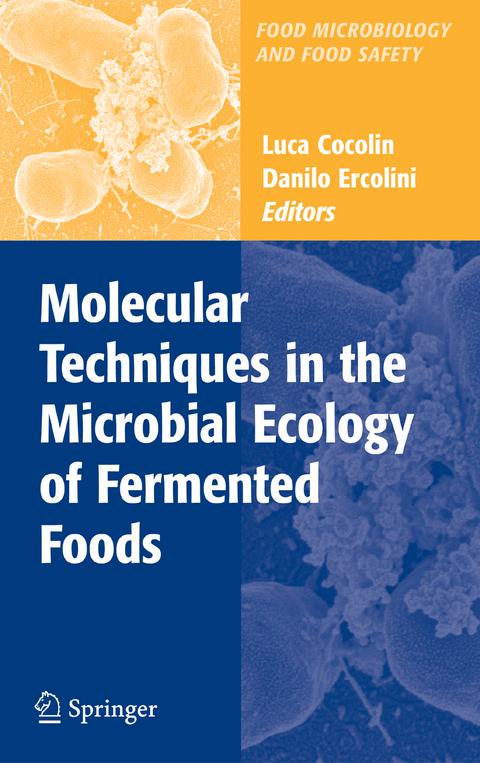
Molecular Techniques in the Microbial Ecology of Fermented Foods
Seiten
2010
|
Softcover reprint of hardcover 1st ed. 2008
Springer-Verlag New York Inc.
978-1-4419-2560-2 (ISBN)
Springer-Verlag New York Inc.
978-1-4419-2560-2 (ISBN)
The approach to study microorganisms in food has changed. In the last few years the field of food fermentations has experienced a very fast development, thanks to the application of methods allowing precise picturing of their microbial ecology. As a consequence, new information is available on the structure and dynamics of the microbial populations taking turns during fermented food production. This is the age when functional genomics, transcriptomics, proteomics and metabolomics are going to shed light on the overall role of bacteria in food ferm- tation, considering also their interactions. Nevertheless, the last 10 years can be considered the “detectomics” era, since much research effort has been dedicated to the development and optimization of biomolecular methods for the detection, reliable identification and monitoring of microorganisms involved in food fermentations. The identification of species and strains during the different phases of fermented foods production allows the understanding of the time when they act or play a role in the food matrix, and the molecular methods can, thus, be used for this purpose in a sort of functional diagnostics. It is well recognized by researchers world-wide that traditional microbiological methods often fail to characterize minor populations or microorganisms for which a selective enrichment is necessary. Moreover, stressed and injured cells need specific culturing conditions to recover and become cultivable on agar media.
Molecular Techniques in Food Fermentation: Principles and Applications.- Dairy Products.- Fermented Meat Products.- Sourdough Fermentations.- Vegetable Fermentations.- Wine Fermentation.- Beer Production.- Other Fermentations.- Probiotics: Lessons Learned from Nucleic Acid-based Analysis of Bowel Communities.- Bioinformatics for DNA Sequence-based Microbiota Analyses.- Role of Bacterial ‘Omics’ in Food Fermentation.
| Erscheint lt. Verlag | 19.11.2010 |
|---|---|
| Reihe/Serie | Food Microbiology and Food Safety |
| Zusatzinfo | XII, 280 p. |
| Verlagsort | New York, NY |
| Sprache | englisch |
| Maße | 155 x 235 mm |
| Themenwelt | Naturwissenschaften ► Biologie ► Mikrobiologie / Immunologie |
| Technik ► Lebensmitteltechnologie | |
| Technik ► Maschinenbau | |
| Technik ► Umwelttechnik / Biotechnologie | |
| ISBN-10 | 1-4419-2560-0 / 1441925600 |
| ISBN-13 | 978-1-4419-2560-2 / 9781441925602 |
| Zustand | Neuware |
| Haben Sie eine Frage zum Produkt? |
Mehr entdecken
aus dem Bereich
aus dem Bereich
Allgemeine Grundlagen und spezielle Anwendungen
Buch | Softcover (2021)
Springer Berlin (Verlag)
54,99 €


